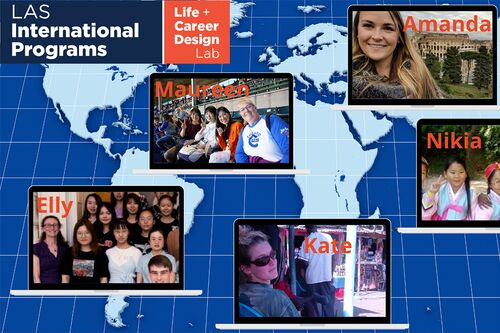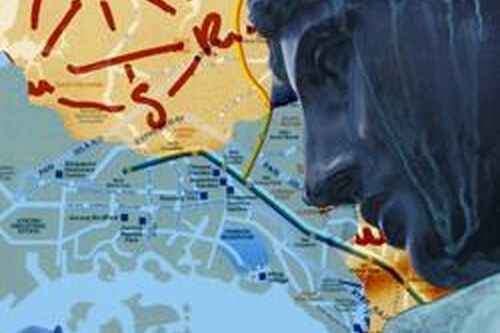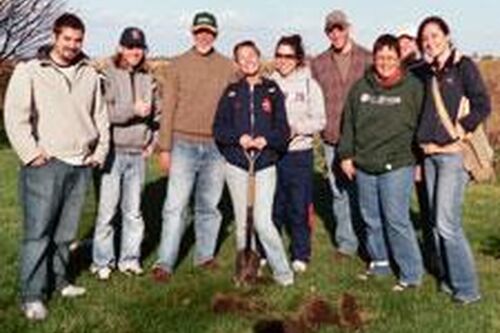The Real Africa
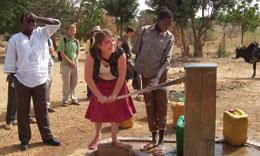
Fourteen students joined economics professor Richard Akresh on a 20-day trip to Burkina Faso in West Africa over the winter break. They returned with an entirely new perspective on that country, Africa as a whole, and their own society as well.
In addition to economics majors, the diverse group ranged from physics and biology majors to political science and international studies majors. Some had traveled extensively outside the United States, while for others this was their maiden voyage.
The overarching lesson the students learned was that "there is more to Africa than poverty and chaos," says Jessica Horn, a graduate student in African studies.
"Before I went, so many people thought we'd visit elephants, get AIDS, or get stuck in a war," says Jim Kleiber, a senior majoring in international studies. "First of all, there are zero, or maybe two, elephants in all of Burkina. Secondly, the AIDS rate is quite low, 2 percent compared to 0.6 percent in the U.S. And thirdly, there is no war in Burkina. It is one of the most peaceful countries in Africa. There are huge stereotypes about Africa," Kleiber adds. "It's very easy to exoticize Africa."
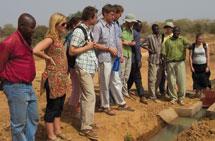
Many students noted that they chose the Burkina Faso trip-one of a dozen countries students can visit through the LAS Courses Abroad program-because they had an opportunity to travel extensively rather than spend time in a classroom. The students met with officials from various non-governmental organizations (NGOs) and government agencies in the capital city of Ouagadougou to learn about some of the agriculture, health, and micro-finance projects that had been launched in villages throughout the countryside. Then the group traveled to see those projects in action.
In every village the students visited, the entire population greeted them, always with a gift of a chicken, guinea fowl, or produce. One time the Illinois group received a live goat. Then the villagers joined the Illinois students to teach them about the irrigation or micro-finance project going on in their village.
"The people in Burkina Faso are the friendliest, most generous people I've ever met," says Erin Woods, who is majoring in sociology and psychology.
Horn, who hopes to work in international development and who has also spent time in South Africa, said Burkina Faso gave her an entirely different perspective on the continent. Compared to South Africa, Burkina Faso was much less developed but also far safer and friendlier. This struck the students particularly because Burkina Faso is one of the poorest countries in Africa, but villagers did not appear to feel stressed or angry about living conditions. The students got a good sense of how complex economic development can be in countries like Burkina Faso.
"There are no simple solutions for improving economic conditions in very poor countries like Burkina," says Akresh.
Kleiber, who is considering joining the Peace Corps after he graduates, came home very interested in figuring out how stereotypes are created and how and why they are perpetuated.
Woods said the trip made her want to do more traveling and it influenced her interest in taking classes that covered topics from an African perspective.
Several students spoke of the difficulty of re-entry into American society. They felt overwhelmed by the choices in an average American supermarket while at the same time they really appreciated things most people take for granted, like hot water and indoor plumbing.
"This trip made me realize you can be worse off, a lot worse off," says Kleiber. "We think our problems are huge, but they don't mean that much."






